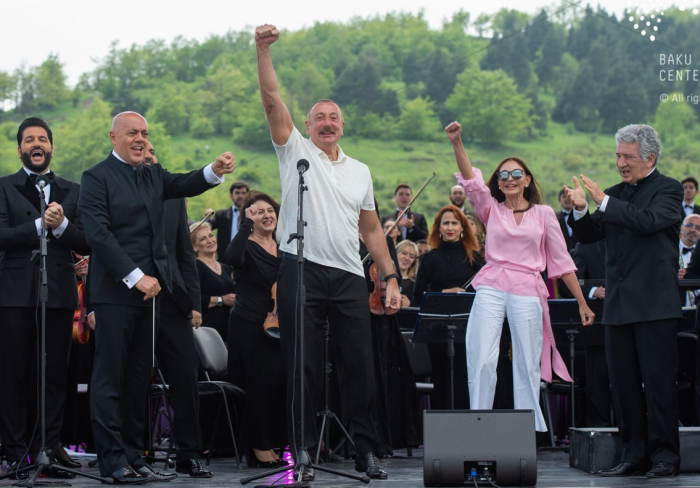No victory is achieved by only military means; if it is so, it cannot be everlasting. After the withdrawal of the army from the battlefield, the country must show its intellectual, cultural and spiritual power. If the liberation of Shusha was a demonstration of Azerbaijan's ‘fierce’ power on the 42nd day of the war with unbelievable military skill, the festival held in Shusha after 6 months was proof of ‘soft’ power. The festival was full of symbols and hints.
On the day of the liberation of Shusha, in his address to the nation the head of the state said: “Dear Shusha, we will revive you!”. This week we saw the realization of those words. Shusha is rapidly reviving both materially and morally. In its face, the features of the new ‘pearl’ of the Caucasus are becoming visible. Each inauguration and groundbreaking ceremony that President Aliyev attended during his visit was symbolic in terms of the future of Shusha. For instance, the opening of the electrical substation means that Shusha has already been lit up. Furthermore, the reconstruction of the Khan Gizi spring, which was dried up has symbolized the return of life to Shusha.
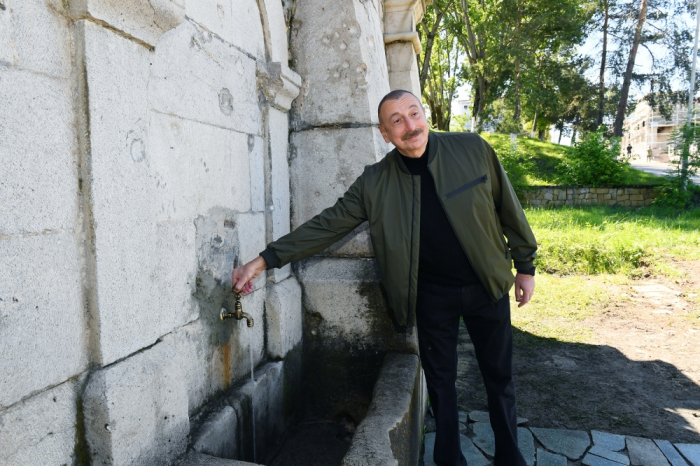
Speaking of the mosque, the mosque and its architectural style were full of symbols. The head of the state stated himself: “The shape of the mosque reflect figure “8” because we liberated Shusha from the occupiers on 8 November, and 8 November is officially Victory Day in Azerbaijan. The two minarets of the mosque should reflect figure “11” because it was in the eleventh month that Shusha and Karabakh were completely liberated from occupation. There used to be 17 mosques in Shusha and the hated enemy destroyed all of them. The construction of the new mosque symbolizes the return of Azerbaijani culture and spirituality to Shusha. However, culture and spirituality do not only mean religion. Therefore, the school, art gallery and creative centre, each of which represents one side of the spiritual life, include Shusha to the spiritual map of Azerbaijan.
Certainly, the "Kharibulbul" festival, which was held in our cultural capital, confirmed its status as the highest point of this symbolism.
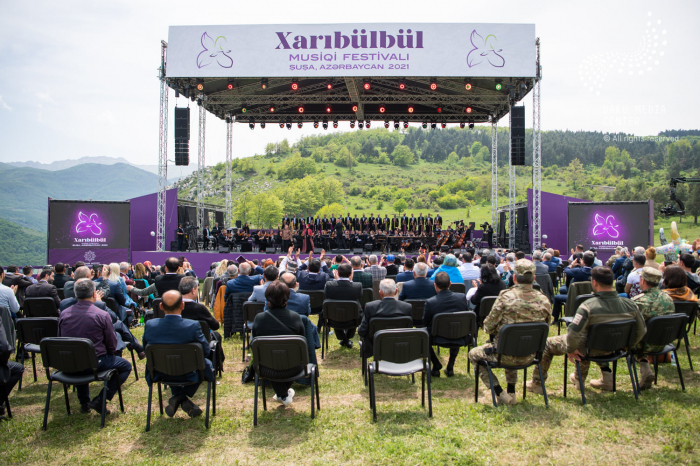
Azerbaijan is there where Azerbaijani music is played. If Azerbaijan returned to Shusha physically in military clothes, its spiritual return was realized through music. As if the message of the festival was “Mourning has ended for Shusha, the period of singing starts from now on”. It was impossible not to see the tears of joy, pride and happiness flowing from people’s eyes in Jidir plain.
“Kharibulbul” is not only a cultural festival, it has an important political and public meaning. There is no doubt that this festival will be international in future and cultural figures will come to Shusha from various parts of the world. However, the first festival brought together nations living in Azerbaijan and gave a message of unity and brotherhood: “We have shed our blood together for this land, we will sing our song together." It was also a demonstration of the fist - ‘silk fist’! Those who had an eye on Shusha were crushed by a “silk fist”. Since the cultural capital of Azerbaijan has been liberated with an “iron fist”, now it will be protected by a “silk fist”.
The liberation of Shusha was a demonstration of Azerbaijan's military power, while the “Kharibulbul” festival demonstrated the country's intellectual and cultural power. The festival crushed the ones, who made claims to Shusha, in the cultural arena. The enemy, who held Shusha in captivity, could not produce even the smallest sample of their culture there. However, as soon as Azerbaijan returned to its ancient city, only six months later, it created a great example of "soft power." It was a parade of Azerbaijan's "soft power" in Shusha. Not every state could manage to organize such a magnificent (not figuratively but literally!) festival in a city that has not yet returned to civilian life. Only the Great State could do that.

The first day of the festival was a demonstration of unity in Azerbaijan, while the second day - the gala concert showed what this nation is capable of, the depth of its potential, how it nurtures and will nurture people. On one stage, the fantastic music performances ranging from academic national music to mugam showed the spiritual power of the people, their boundless talent and their potential to the world. It proved that Azerbaijani people are not powerful only because of their modern Army, their brave soldiers. We did not return to Shusha only with weapons. We are back here with our culture. It was the spiritual and cultural power of Azerbaijan demonstrated on the stage installed on the plain.
The festival program was designed with such delicacy and skill that it is as if for centuries, Azerbaijani culture has developed to shine in Shusha one day, and today is that day. It is as if both the mountains surrounding Shusha and the trees in the Topkhana forest were tuned to the mood of Azerbaijani music. Previously, we have listened to Bayati-Shiraz thousands of times, but it has never sounded so effective. The " Karabakh Shikastasi" has never been more thrilling than the oratorio performed on the Jidir Plain. The "Koroglu" overture has never been so overwhelming, the "Azerbaijan" capriccio is so determined, the famous fragment of the "Seven Beauties" ballet has never been heard so gently. As if our music was waiting for that day together with our people, preparing itself for that day…
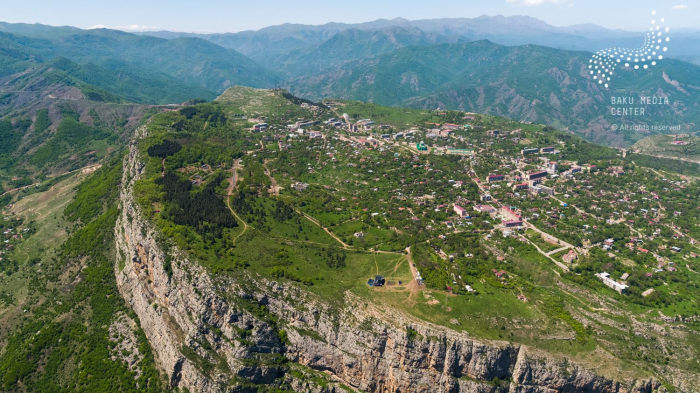
Everything directly or indirectly related to Shusha returned to Shusha: Khan Shushunsky, Bulbul, Jabbar Qaryagdioglu… Symbolically, the soul was reunited with the body, Shusha was resurrected, revived…
And by the way, the top of the Shusha mountains was foggy that day. It was as if nature also wanted to add something to the list of symbolism…
Heydar Aliyev once said, “I wish to go to Shusha with you. We will go, believe me, we will go! .. ”When the words were uttered, you realize in tears that he was not only a National Leader, a Great Leader but also a prophet who predicted the future of the ideology of "Azerbaijanism".
In Shusha, it was not only the music performed on the stage in Shusha, but the spirit of Azerbaijan. Under the recommendation of the Supreme Commander-in-Chief, Ilham Aliyev who showed the military power of Azerbaijan on the battlefield, the Heydar Aliyev Foundation presented its moral side on the cultural sphere. Hard power and soft power. "Iron Fist" and "Silk Fist". The combination of these two factors will ensure that Shusha will always remain an Azerbaijani city. Because it is impossible to break such a spirit.
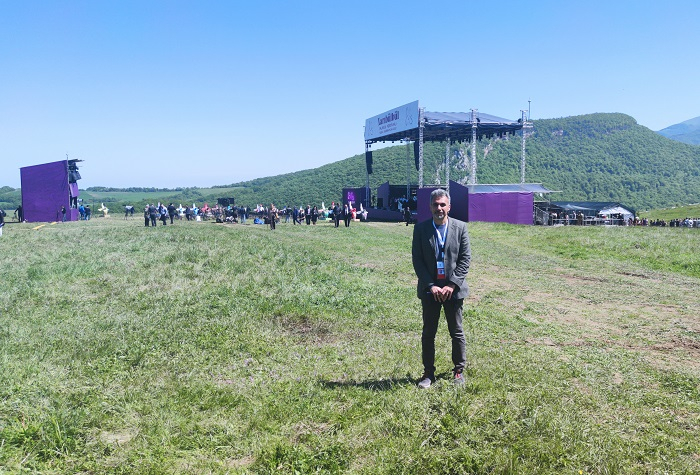
Vusal Mammadov is editor-in-chief of AzVision news outlet.
More about:








